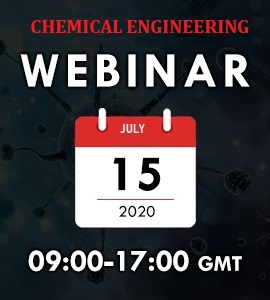Petroleum Refining and Petrochemicals
Petrochemicals are chemical products developed from petroleum. Some chemical compounds made from petroleum are also obtained from fossil fuels, such as coal or natural gas, and renewable sources such as corn or sugar cane. The most common petrochemicals are olefins and aromatics (including benzene, toluene and xylene isomers), Synthesis gas. Oil refineries produce olefins and aromatics by method of fluid catalytic cracking of petroleum fractions. Chemical plants produce olefins by a steam cracking of natural gas liquids like ethane and propane. Aromatics are produced by a process of catalytic reforming of naphtha. Petroleum refining processes are nothing but chemical engineering processes used in petroleum refineries to change crude oil into useful products such as liquefied petroleum gas (LPG), gasoline, petrol, kerosene, jet fuel, diesel oil and fuel oils. Each refinery has its own specific arrangement and combination of refining processes largely determined by the refinery places, desired products and economic considerations. The oil and gas security and service market size is estimated to increase from USD 26.34 Billion in 2015 to USD 33.90 Billion by 2020, at an estimated (CAGR) of 5.2% from 2015 to 2020.
Related Conference of Petroleum Refining and Petrochemicals
Petroleum Refining and Petrochemicals Conference Speakers
Recommended Sessions
- Advances in Renewable Chemicals
- Applications of Chemical Technology
- Biochemical Engineering
- Biofuels
- Biomolecular Engineering
- Biotechnology And Biochemical Engineering
- Chemical Engineering
- Chemical Industry and Market Analysis
- Chemical Polymer Technology
- Chemical Reaction Engineering
- Crystallization
- Electrochemistry and Electrochemical Engineering
- Environmental and Sustainable Chemical Engineering
- Environmental Engineering and Elementary Biology
- Material Science and Engineering
- Oil, Gas and Petroleum Refineries
- Organic Chemistry
- Petroleum Refining and Petrochemicals
- Physical and Organic Chemistry
- Thermodynamics
- Unit operation and Separation Process
Related Journals
Are you interested in
- 3D Printing in Microfluidics - Microfluidics 2026 (Germany)
- AI & Automation in Microfluidic Systems - Microfluidics 2026 (Germany)
- Biomedical Microfluidic Applications - Microfluidics 2026 (Germany)
- Clinical Translation & Commercialization - Microfluidics 2026 (Germany)
- Droplet-Based Microfluidics - Microfluidics 2026 (Germany)
- Lab-on-a-Chip Innovations - Microfluidics 2026 (Germany)
- Microfabrication & Soft Lithography - Microfluidics 2026 (Germany)
- Microfluidic Biosensors & Diagnostics - Microfluidics 2026 (Germany)
- Microfluidic Cell Culture Platforms - Microfluidics 2026 (Germany)
- Microfluidics for Drug Delivery - Microfluidics 2026 (Germany)
- Microreactors & Chemical Processing - Microfluidics 2026 (Germany)
- Nanofluidics & Molecular Transport - Microfluidics 2026 (Germany)
- Organ-on-Chip Engineering - Microfluidics 2026 (Germany)
- Point-of-Care Microdevices - Microfluidics 2026 (Germany)
- Single-Cell Microfluidic Analysis - Microfluidics 2026 (Germany)

